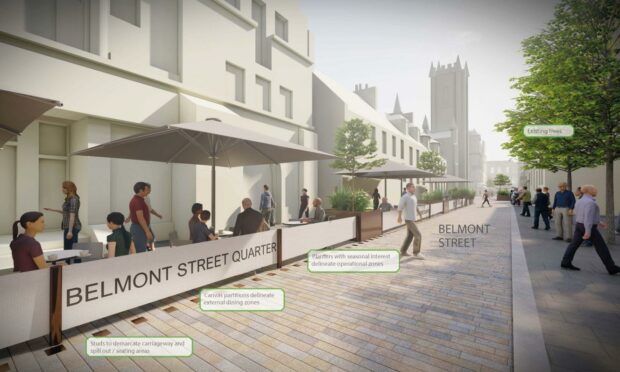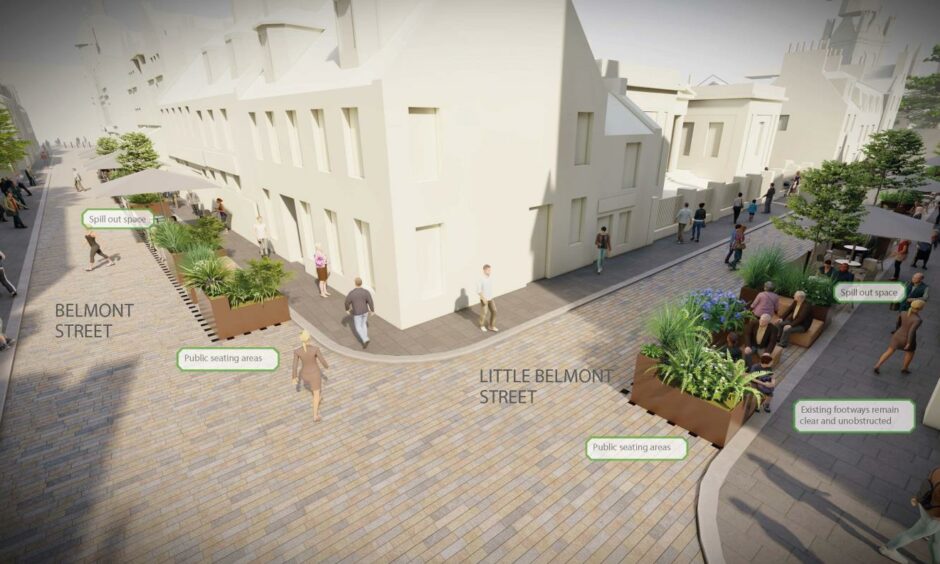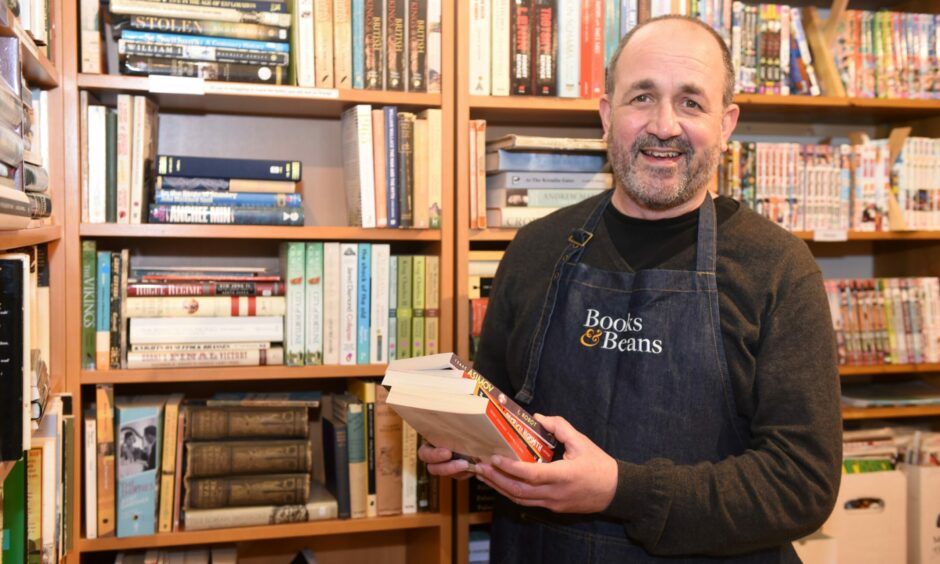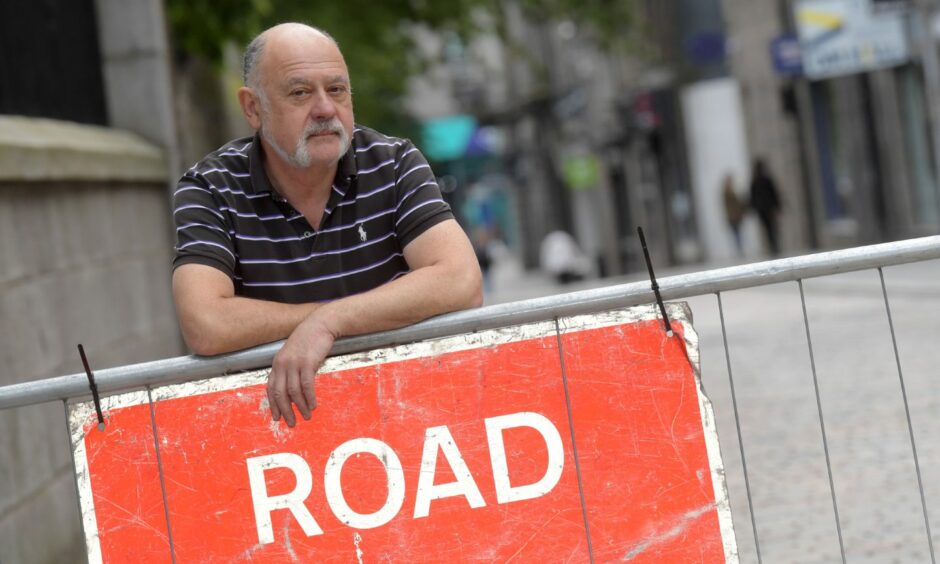A drastic, permanent, shake-up of Belmont Street and surrounding lanes in Aberdeen city centre is being put to the public.
Planners, tasked with making temporary coronavirus-prompted marquees and outdoor eating areas more permanent, have drawn up proposals for the so-called Belmont Zone.
Traders are now being asked directly what they make of the plans, with opinions very much mixed on the existing temporary structures currently in place.
Residents, too, are being asked to help the council shape the future of the area, earmarked for the city’s fledgling ‘cafe culture’ scene along with nearby Schoolhill and Upperkirkgate.
While proposals are drawn up for an outdoor hospitality expansion around Belmont Street, council officers have already been tasked with looking at what can be done in the short term outside Aberdeen Art Gallery.
A business case and way forward for the permanent cafe culture set up, informed by the consultation, will be brought forward to councillors in February.
It’s all part of the council’s £150 million city centre masterplan refresh, which is also expected to bring a new £50m food and drink market to the former British Homes Stores site, pedestrianisation of the central stretch of Union Street, a residential revamp of Queen Street and a potential new joint-venture stadium to keep the Dons at the beach.
Council finance convener Ryan Houghton said: “These multi-million-pound projects will create a more vibrant and people-friendly city centre and will help to heal the city from the economic damage inflicted by Covid-19 by breathing new life into our city centre, boosting job creation, and promoting a wealth of opportunities to allow businesses and traders to thrive.
“I’d encourage everyone in the area to take part in this consultation and it’s vitally important we understand what the operational requirements are for local businesses in the area as well as help shape the finer details so we can progress this exciting new chapter in the Belmont Street and Back Wynd area.”
More than 3,000 people back permanent shift to cafe culture in Belmont Street
Roads around Belmont Street were closed off and altered significantly at the outset of the pandemic, as part of the Spaces For People work.
Changes were put in place temporarily – now approaching 18 months ago – during the £1.76 million project to allow extra space for the food and drinks venues to trade, to make room for pedestrians and cyclists to socially distance and queue for entry to premises in the early days of reopening.
John Wigglesworth, the owner of Books And Beans, told us: “The pedestrian area in the Belmont Quarter has been overwhelmingly successful in winter and summer months and has also been supported by a petition collected by local coffee houses signed by more than 3,000 people.
“The opportunity on the table is to create a special area for pedestrians to enjoy a range of hospitality and retail.
“Just by making the area pedestrian and policing it, properly closing it off, the area will thrive even more than it already has.
“But what is absolutely clear to me is that the vast, the absolute, majority of people we have spoken to at our premises and that have signed the petitions are clearly in favour of it.”
Temporary ‘dog’s dinner’ in Belmont Street has left some wary of permanent cafe culture move
Having brought about the physical distancing project at speed due to health fears, now the local authority planners are wanting to take into full account the needs of businesses in the Belmont area – as not all are supportive of the change, and claim it has hugely affected their operations.
“It’s a complete dog’s dinner,” coffee roaster Ian Cukrowski said.
The owner of Little Belmont Street’s Macbeans has been a long-time critic of the temporary change, which has stopped a steady flow of traffic to his specialist shop.
“It will never be what they all see in their heads – not a chance.
“It’s the north-east: we have wind and rain and people have alternatives.
“That’s the big thing, now they are shooed away from the city to elsewhere.
“They just seem to think people will suck it up, this cafe culture, and to be honest it just breaks my heart to see the area now compared to what it used to be.”



